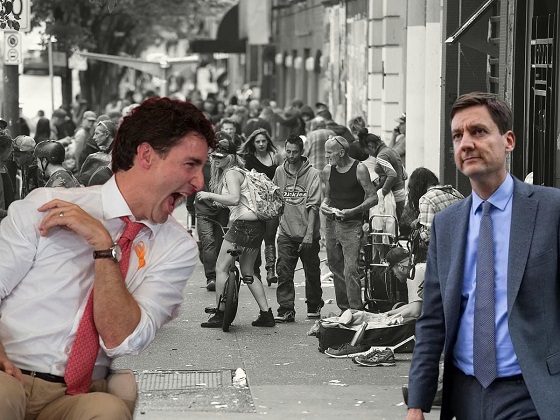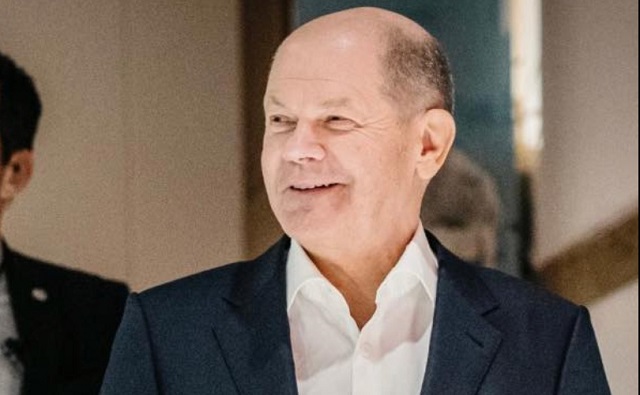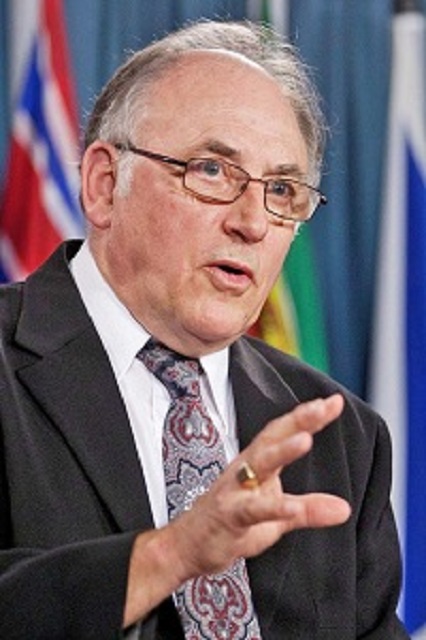Business
Investing In A Pandemic World

Investing In A Pandemic World
Launching an investment column in the midst of the biggest economic meltdown in investment history is a peculiar thing to do, and yet, here we are. Actually, the timing may be excellent: given the parameters and objectives of this column – how not to invest, as much as how to invest – what better time to wade in? If you’re a seasoned investor, the past few months most likely have you huddled in the basement under the stairs, sucking your thumb and rocking back and forth. The market has been pounded, and justifiably so – the strategy of governments to contain COVID-19 involves essentially shutting down large sectors of the economy. One can easily surmise that industries like tourism, air travel, etc. will be in big trouble; the problem is determining how far the rot goes – if an airline fails, or many of them, what industries does it take down with it? In a highly interconnected world, the answers are not clear.
Rather than panic and throw in the towel though (as some investors appear to have done), it is wise to stop hyperventilating if you can and consider the landscape without the lens of panic. First, the pounding in the stock market simply erased the extraordinary gains made in the past several years. As of writing, the S&P 500 Index ETF (exchange traded fund, which invests in a basket of stocks that mirrors the S&P 500 companies on behalf of individuals) is now back at a level of two years ago. Today’s data point might look like a disaster relative to the value of the portfolio 4 months ago, but that paper gain to the end of 2019 was a bit suspect anyway and most expected a market correction of some kind. Not quite like this one of course, but of some kind.
Second, governments around the world now have an arsenal of tools with which to stabilize economies. Or, more like they have a variety of smaller tools and one really big one: a great big freaking printing press to crank out money and shovel into the economy’s engines. There are many arguments as to why this is a bad idea in the long run, and they may all be right, but over the past few decades these strategies have become the norm. Government-led monetary tinkering, on ever-larger scales, saved the financial world in the 2008-9 Great Recession by flooding the world with bank-stabilizing money, and that success convinced those central bankers that this tool has no practical limits. The world is now so interlinked and dependent on central bankers’ policies that shouting about how they will destroy the financial world eventually is like a dog barking at a car. We need to think and act as though these policies aren’t going away. Because they’re not.
Governments, in this consumption-based world, can see the perils of allowing huge swathes of the global economy to perish. We may sneer = at a consumer-based culture, but we wet our pants when we consider the alternative. We need to learn to do things as cleanly as possible, but nowhere in the world does anyone want to see tourism grind to a halt, or people stop buying automobiles, or cosmetics, or any other mainstay of our economy.
As a result, those central banks and governments won’t let it happen. They will pump in money, and they will ease restrictions as soon as possible to get things back to work. It is a challenging time to consider putting money in the stock market (if you’re lucky enough to have some, and a job to boot), but some great companies are on sale in a huge way now. We can see, for example, that anything to do with the food/medicine/distribution systems is of critical importance. Given the fact that governments will print money to shove at anything the general population can’t live without, it is safe to assume those sectors will pull through. Same as natural gas and other industrially-critical materials – the whole climate change narrative has been stuffed in a trunk for the time being. No one wants to face next winter with a natural gas industry that’s gone out of business.
There is of course risk that the markets would continue to fall, based on the fact that there is so much uncertainty in the world with respect to demand erosion and recovery timing. But if the big blue-chip companies that provide our industrial lifelines go defunct and irreparably damage your portfolio, well, we’ll all have much bigger problems to worry about.
For more stories, visit Todayville Calgary
Business
Taxpayers criticize Trudeau and Ford for Honda deal

From the Canadian Taxpayers Federation
Author: Jay Goldberg
The Canadian Taxpayers Federation is criticizing the Trudeau and Ford governments to for giving $5 billion to the Honda Motor Company.
“The Trudeau and Ford governments are giving billions to yet another multinational corporation and leaving middle-class Canadians to pay for it,” said Jay Goldberg, CTF Ontario Director. “Prime Minister Justin Trudeau is sending small businesses bigger a bill with his capital gains tax hike and now he’s handing out billions more in corporate welfare to a huge multinational.
“This announcement is fundamentally unfair to taxpayers.”
The Trudeau government is giving Honda $2.5 billion. The Ford government announced an additional $2.5 billion subsidies for Honda.
The federal and provincial governments claim this new deal will create 1,000 new jobs, according to media reports. Even if that’s true, the handout will cost taxpayers $5 million per job. And according to Globe and Mail investigation, the government doesn’t even have a proper process in place to track whether promised jobs are actually created.
The Parliamentary Budget Officer has also called into question the government’s claims when it made similar multi-billion-dollar handouts to other multinational corporations.
“The break-even timeline for the $28.2 billion in production subsidies announced for Stellantis-LGES and Volkswagen is estimated to be 20 years, significantly longer than the government’s estimate of a payback within five years for Volkswagen,” wrote the Parliamentary Budget Officer said.
“If politicians want to grow the economy, they should cut taxes and red tape and cancel the corporate welfare,” said Franco Terrazzano, CTF Federal Director. “Just days ago, Trudeau said he wants the rich to pay more, so he should make rich multinational corporations pay for their own factories.”
Business
UN plastics plans are unscientific and unrealistic

News release from the Coalition of Concerned Manufacturers and Businesses of Canada
“We must focus on practical solutions and upgrading our recycling infrastructure, not ridiculous restrictions that will harm our health care system, sanitary food supply, increase costs and endanger Canadians’ safety, among other downsides.”
This week Ottawa welcomes 4,000 delegates from the United Nations to discuss how they will oversee a reduction and even possible elimination of plastics from our lives. The key problem is no one has ever figured out how they will replace this essential component of our modern economy and society. The Coalition of Concerned Manufacturers and Businesses of Canada (CCMBC) has launched an information campaign to discuss the realities of plastic, how it contributes massively to our society and the foolishness of those who think plastics can be eliminated or greatly reduced without creating serious problems for key industries such as health care, sanitary food provision, many essential consumer products and safety/protective equipment, among others. CCMBC President Catherine Swift said “The key goal should be to keep plastics in the economy and out of the environment, not eliminate many valuable and irreplaceable plastic items. The plastics and petrochemical industries represent about 300,000 jobs and tens of billions contribution to GDP in Canada, and are on a growth trend.”
The UN campaign to ban plastics to date has been thwarted by reality and facts. UN efforts to eliminate plastics began in 2017, motivated by such terrible images as rivers with massive amounts of floating plastic and animals suffering from negative effects of plastic materials. Although these images were dramatic and disturbing, they do not represent the big picture of what is really happening and do not take into account the many ways plastics are hugely positive elements of modern society. Swift added “Furthermore, Canada is not one of the problem countries with respect to plastics waste. Developing countries are the main culprits and any solution must involve helping the leading plastics polluters find workable solutions and better recycling technology and practices.”
The main goal of plastic is to preserve and protect. Can you imagine health care without sanitary, flexible, irreplaceable and recyclable plastic products? How would we keep our food fresh, clean and healthy without plastic wraps and packaging? Plastic replaces many heavier and less durable materials in so many consumer products too numerous to count. Plastics help the environment by reducing food waste, replacing heavier materials in automobiles and other products that make them more energy-efficient. Many plastics are infinitely recyclable and innovations are taking place to improve them constantly. What is also less known is that most of the replacements for plastics are more expensive and actually worse for the environment.
Swift stated “Environment Minister Steven Guilbeault has been convinced by the superficial arguments that plastics are always bad despite the facts. He has pursued a campaign against all plastics as a result, without factoring in the reality of the immense value of plastic products and that nothing can replace their many attributes. Fortunately, the Canadian Federal court overturned his absurd ban on a number of plastic products on the basis that it was unscientific, impractical and impinged upon provincial jurisdiction.” Sadly, Guilbeault and his Liberal cohorts plan to appeal this legal decision despite its common-sense conclusions. Opinion polls of Canadians show that a strong majority would prefer this government abandon its plastics crusade at this point, but history shows these Liberals prefer pursuing their unrealistic and costly ideologies instead of policies that Canadians support.
The bottom line is that plastics are an essential part of our modern society and opposition has been based on erroneous premises and ill-informed environmentalist claims. Swift concluded “Canada’s record on plastics is one of the best in the world. This doesn’t mean the status quo is sufficient, but we must focus on practical solutions and upgrading our recycling infrastructure, not ridiculous restrictions that will harm our health care system, sanitary food supply, increase costs and endanger Canadians’ safety, among other downsides.” The current Liberal government approach is one that has no basis in fact or science and emphasizes virtue-signaling over tangible and measurable results. Swift noted “The UN’s original founding purpose after World War II was to prevent another world war. Given our fractious international climate, they should stick to their original goal instead of promoting social justice warrior causes that are unhelpful and expensive.”
The CCMBC was formed in 2016 with a mandate to advocate for proactive and innovative policies that are conducive to manufacturing and business retention and safeguarding job growth in Canada.
SOURCE Coalition of Concerned Manufacturers and Businesses of Canada
-

 Alberta22 hours ago
Alberta22 hours agoRed Deer Doctor critical of Alberta’s COVID response to submit report to Danielle Smith this May
-

 conflict1 day ago
conflict1 day agoCol. Douglas Macgregor torches Trump over support for bill funding wars in Ukraine and Israel
-

 Censorship Industrial Complex2 days ago
Censorship Industrial Complex2 days agoDesperate Liberals move to stop MPs from calling Trudeau ‘corrupt’
-

 Business6 hours ago
Business6 hours agoDon’t be fooled by high-speed rail
-

 Alberta5 hours ago
Alberta5 hours agoActivity-Based Hospital Funding in Alberta: Insights from Quebec and Australia
-

 Business2 days ago
Business2 days agoFederal government’s ‘fudget budget’ relies on fanciful assumptions of productivity growth
-

 Health1 day ago
Health1 day agoTransgender activists are threatening the author of scathing UK report on child ‘sex changes’
-

 Business3 hours ago
Business3 hours agoUN plastics plans are unscientific and unrealistic








